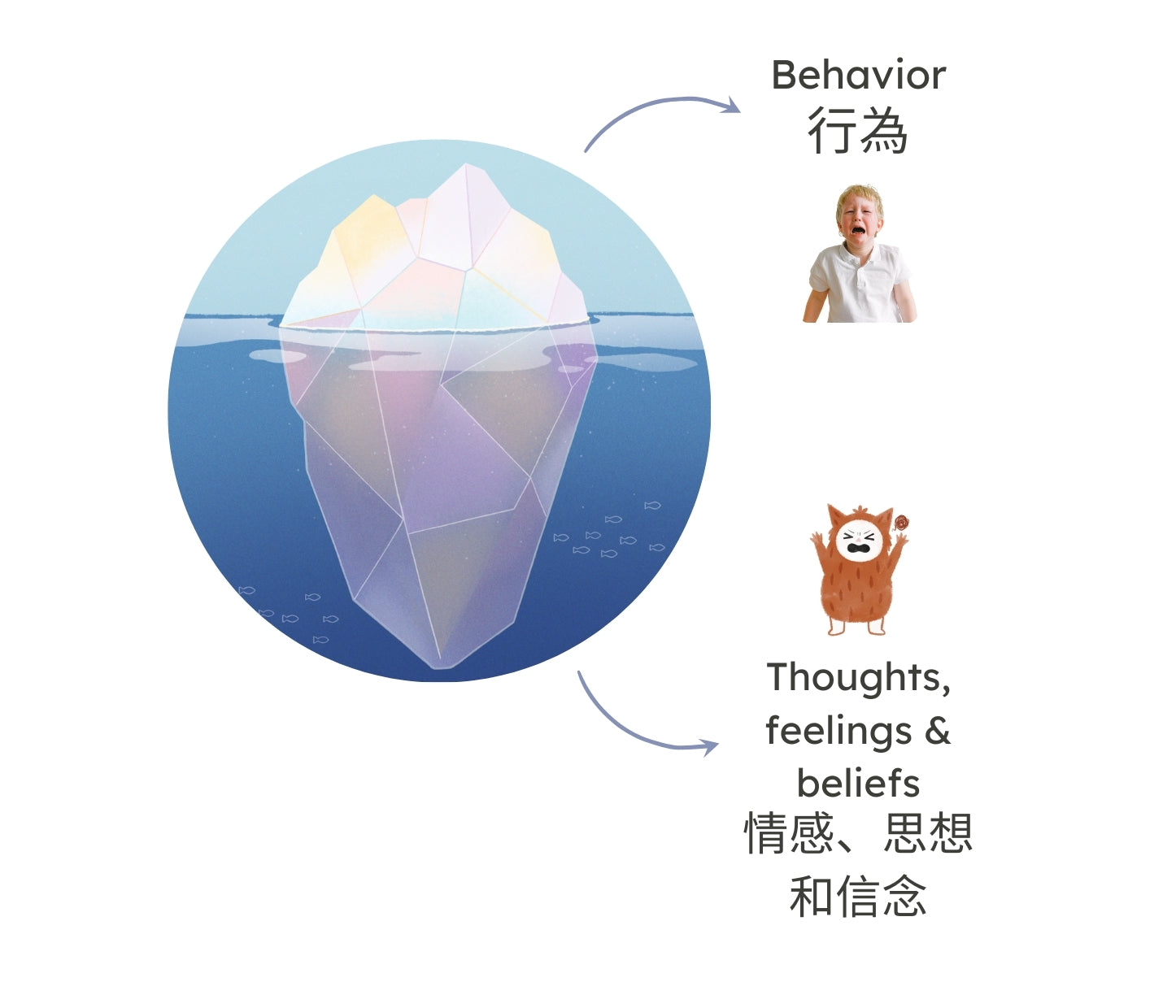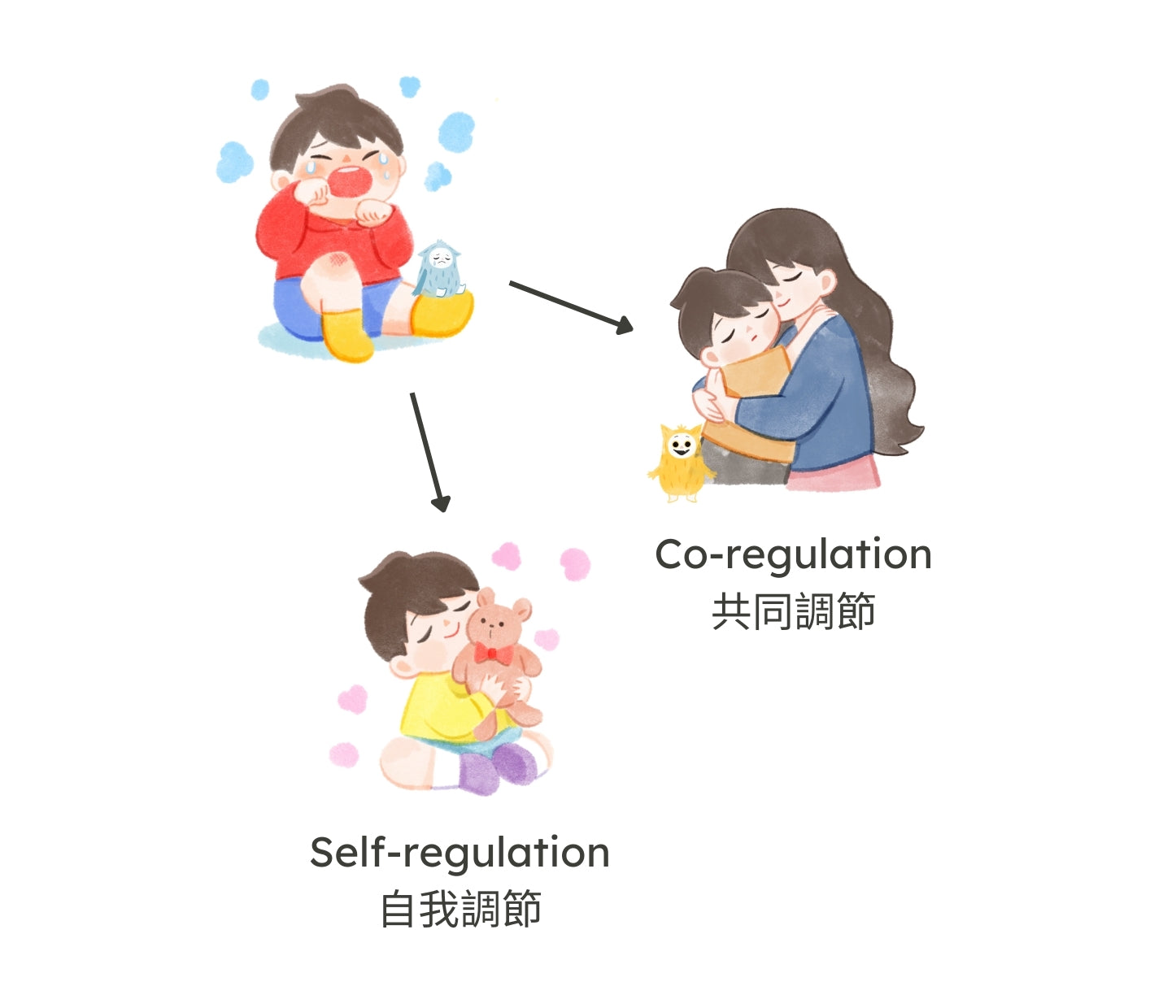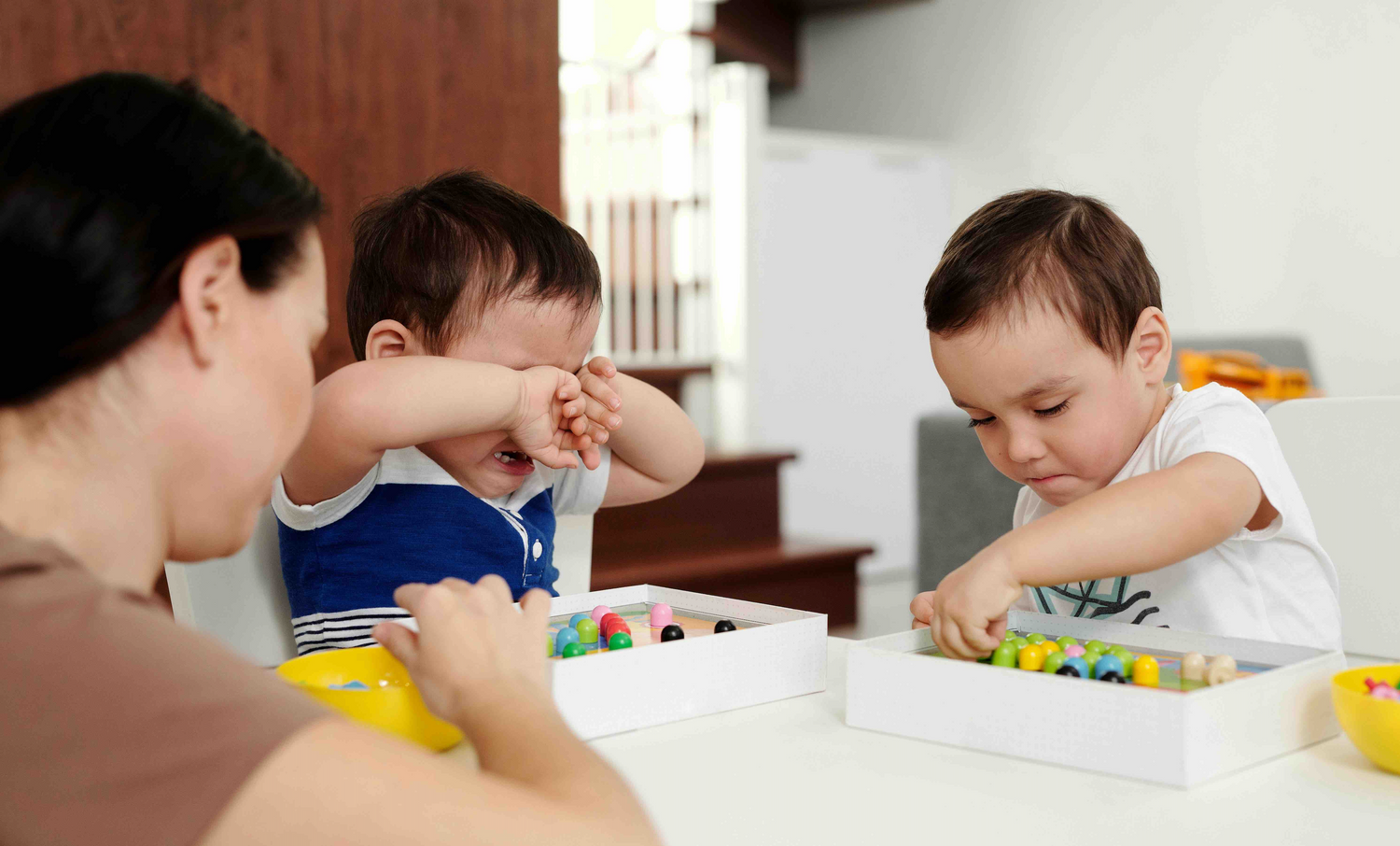What is SEL (Social & Emotional Learning)?
"SEL," which stands for Social & Emotional Learning, is an educational approach aimed at cultivating children's social skills, emotional management abilities, empathy, and compassion.
The learning objectives of SEL include:
- Learning to express and manage emotions appropriately
- Social skills such as cooperation, communication, empathy, and conflict resolution
- Enhancing problem-solving and critical thinking skills
- Fostering self-confidence and resilience
- Learning to think calmly, make informed decisions, and effectively solve problems
Research has shown that early SEL also has long term benefits in children’s academic outcomes, mental wellbeing, and career success.

Challenging behaviors that parents often encounter
According to the Positive Discipline Association, challenging behavior is just the tip of the iceberg. These are things like:
- Tantrums and meltdowns
- Always saying ‘no’
- Giving up easily
- Lack of respect
- Impatience
- Lack of independence
- Inability to concentrate
Instead of simply trying to correct the behavior, experts suggest looking beneath the iceberg to understand the feelings, thoughts, and beliefs behind the behavior. That’s where social & emotional learning comes in.

Looking beneath the 'Iceberg'
Research shows SEL is like reading and writing - it’s a skill that needs to be taught! Before children learn to understand and regulate their feelings, they need ‘co-regulation’. Simply put, co-regulation is how parents help children understand and regulate big feelings. Through co-regulation, parents have a window to look beneath the iceberg to see what's really causing the challenging behaviors.

How do you start SEL at home? Meet Emomo™
Emomo is a character we created to bridge the abstract world of ‘emotions’ with what children can understand. Emomo has different colors and expressions that clearly represent different emotions, which children can easily relate to.
The Emomo Kit is inspired CASEL’s (Collaborative for Academic, Social & Emotional Learning) approach, simplified into four parts:
Identifying feelings → Communicating feelings → Regulating feelings → Repeat daily


